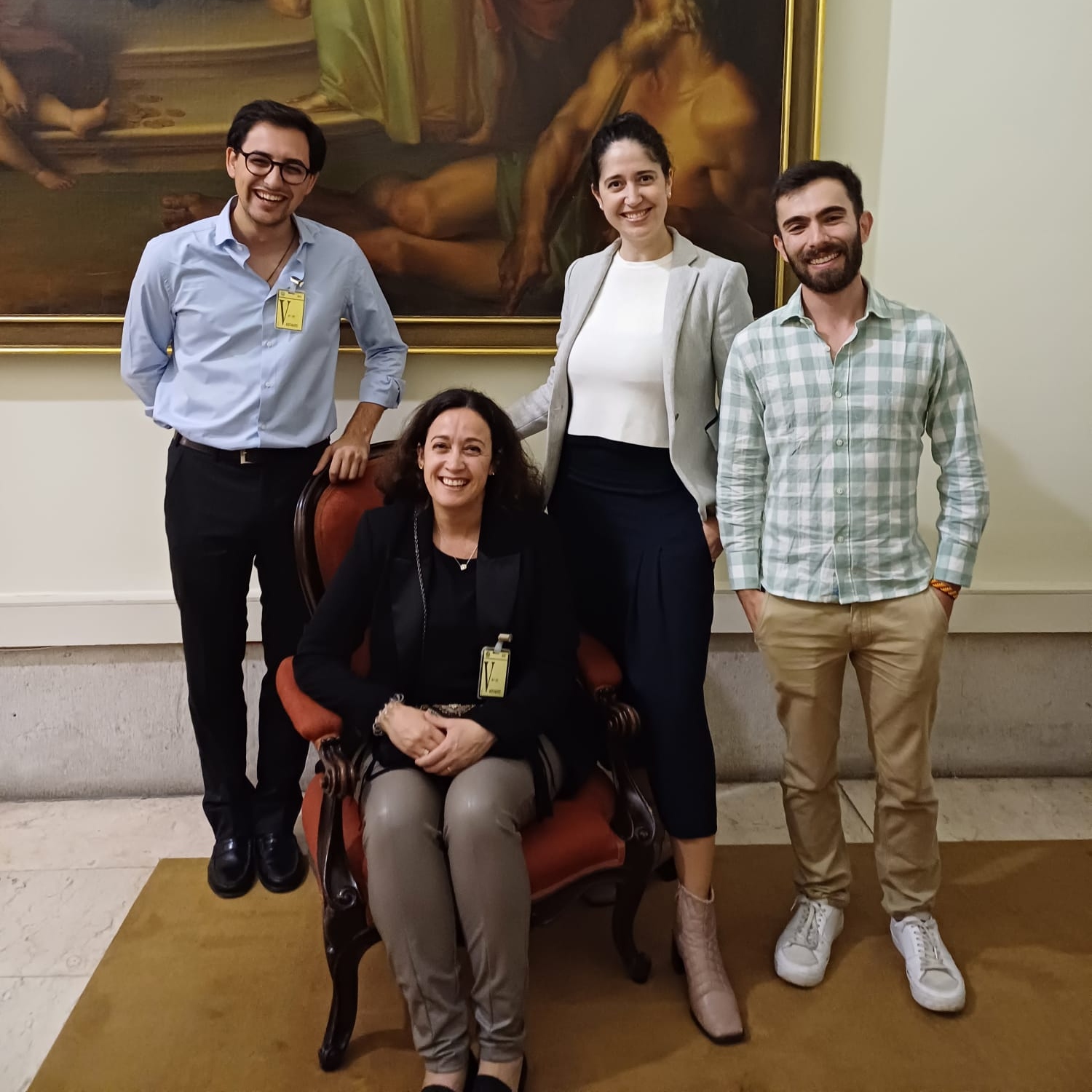Bridge AI is a collaborative effort involving the Champalimaud Foundation (CF), the Institute for Systems and Computer Engineering, Research and Development in Lisbon (INESC-ID), and Unbabel, among others. The initiative is part of the broader goal to align globally competitive AI innovation with European principles and values. It is funded by the Fundação para a Ciência e a Tecnologia (FCT), the General Secretariat of the Presidency of the Council of Ministers (SGPCM), and Portugal's Recovery and Resilience Plan (PRR), with support from the Competence Centre for Planning, Policy and Foresight in Public Administration (PlanAPP).
The meeting aimed to introduce the Bridge AI project, an offshoot of the Center for Responsible AI, and highlight its role in supporting the implementation of the newly approved Artificial Intelligence Act (AI Act), a European Union (EU) regulation establishing a common regulatory and legal framework for AI within the EU.
Project Coordinator Helena Moniz (INESC-ID), Joana Lamego (CF), and members from Unbabel, an AI-powered language operations platform and unicorn company, along with the communication consultancy JLM&A, showcased Bridge AI to the Committee. They represented a diverse, multidisciplinary consortium of partners cooperating in five working groups to support legislators, regulators, and public administration in implementing the AI Act.
Joana Lamego, Head of CF’s Strategic Research Development, stated, “While some may view applying AI to health as an unacceptable risk, we believe Portugal can help lead the way and be at the forefront in Europe in achieving a balanced coordination between regulation and innovation. The development of CF’s Warehouse, poised to become Europe’s first centre dedicated to AI-powered digital therapeutics, is advancing apace, so this was a major motivation for us to bring this project to life”.
“We want to close the gap between scientific institutions and public bodies and bring researchers and policymakers into an actionable knowledge space where they can effectively communicate and exchange knowledge. Our partners at JLM&A are key to ensuring that we all speak a common language and understand each other”.
“We’re not starting from scratch. Compliance is already being pursued, so we’re taking advantage of concrete use cases by looking at companies developing and deploying AI-based products or solutions. There’s a strong incentive for these companies to meet compliance standards even before the AI Act enters into force. This provides us with a wealth of knowledge from law firms to AI tech companies, which we can use to support the AI Act’s rollout. The challenges in this process are multifaceted, which is why we are addressing them through the different perspectives of the five working groups that comprise Bridge AI”.
Razvan Sandru, a postdoctoral researcher in CF’s Systems Neuroscience Lab, coordinates the “AI Ethics in Regulatory Processes” working group, which also includes André Valente and Cristina Ferreira, members of CF’s Ethics Committee. Sandru explains, “How should ethical issues be addressed in AI regulation processes? How can public administration and civil society be trained in AI ethics? These are the questions that Bridge AI aims to help policymakers tackle. This field is particularly challenging because AI is constantly evolving, making it a moving target”.
Joe Paton, Director of the Champalimaud Neuroscience Programme, is the Coordinator of Bridge AI’s “AI Advanced Training and Literacy” working group, with CF’s Digital Therapeutics Programme Manager Catarina Pimentel also participating. Paton emphasises, “It’s crucial that we empower different stakeholders, from public administrators to healthcare professionals, to understand AI and identify long-term strategies to enhance AI literacy levels in Portugal. We need to develop effective training programmes to achieve this goal”. Other working groups within Bridge AI focus on “Risk Assessment Tools”, “AI Act Interface and Implementation”, and “Efforts Outside the EU”.
John Krakauer, a visiting scientist at CF and Professor of Neurology, Neuroscience, and Physical Medicine & Rehabilitation at Johns Hopkins School of Medicine, is a consultant for the project: “AI has the potential to revolutionise healthcare, particularly in digital therapeutics and personalised medicine. However, we need to ensure that this innovation is balanced with robust regulation to protect European values. It’s a delicate balance, but one that is crucial for advancing healthcare without stifling technological progress”.
Lamego adds, “We’re deeply grateful to the Science for Policy (S4P) initiative for connecting researchers with policymakers and selecting us for funding. This support is making the project possible and enabling us to mobilise the community in shaping the future of AI in Portugal and beyond. Our presentation was well-received, and the Committee suggested that the project’s conclusions, which will be presented at CF on 19th October, also be shared with them”.
Text by Hedi Young, Editor and Science Writer of the Champalimaud Foundation's Communication, Events & Outreach Team.

